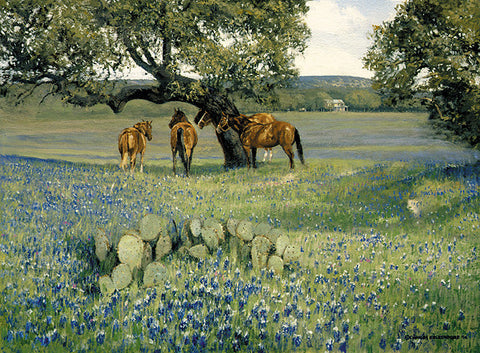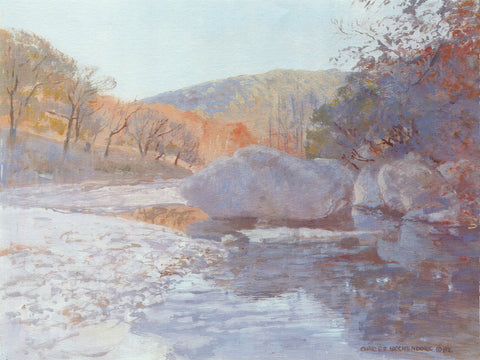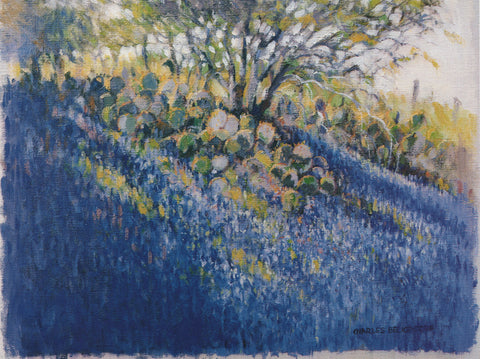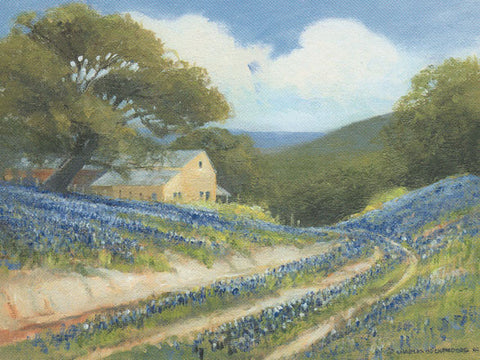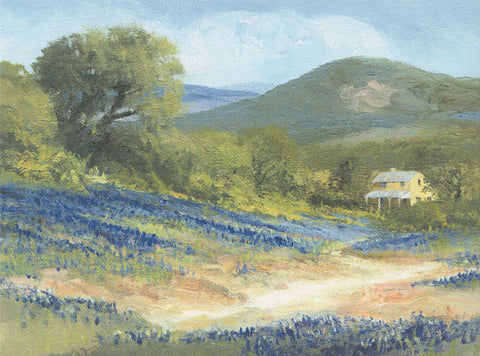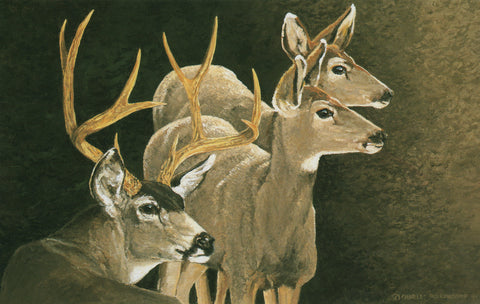
H-14 Mule Deer
Color Reproduction | By Charles Beckendorf
Additional Information
The Desert Mule Deer is found in almost all kinds of habitat in the Trans Pecos and parts of the Panhandle and High Plains. The whitetail deer has invaded much of the mule deer range in recent years, and in many areas both deer are present.
The antlers of a mule deer are typically branching, as opposed to the unbranched tines of a whitetail; however, desert mule deer often have non-branching tines that look like a whitetail
This image is from the Charles Beckendorf Texas Wildlife book. The original was an acrylic painting on canvas (1992) and the size is approximately 14 X 11 inches. The total edition size of this print is 500.
This is a part of the Texas Wildlife Art Prints Collection.
Color Reproduction
The Desert Mule Deer is found in almost all kinds of habitat in the Trans Pecos and parts of the Panhandle and High Plains. The whitetail deer has invaded much of the mule deer range in recent years, and in many areas both deer are present.
The antlers of a mule deer are typically branching, as opposed to the unbranched tines of a whitetail; however, desert mule deer often have non-branching tines that look like a whitetail
This image is from the Charles Beckendorf Texas Wildlife book. The original was an acrylic painting on canvas (1992) and the size is approximately 14 X 11 inches. The total edition size of this print is 500.
This is a part of the Texas Wildlife Art Prints Collection.
Beckendorf color reproductions are developed using four color process printing on fine white paper. This advanced technique utilizes separate color plates for each of the primary colors, plus black. High-resolution digital scans and special process inks are utilized to yield beautiful, accurate reproductions.
About the Artist - Charles Beckendorf
Charles grew up in Mathis, Texas, where he had the opportunity to spend hours on large ranches. Generous land owners gave him permission to wander freely over their ranches and he observed creatures in their natural surroundings. He developed a lifelong love of nature, whether it be in the tiniest of flowers or the largest of animals. It was at this time that he became a true naturalist.
We Also Recommend
REVIEWS

